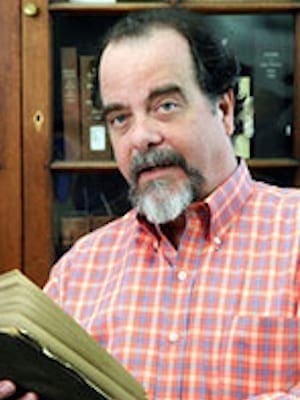“Forgive and forget,” the old saying goes. It is not possible. Things that urgently plead for forgiveness are the same things that cannot be forgotten. The need for forgiveness announces that something happened that will be hard to forget. Old wounds remain tender and always are vulnerable to bursting open again as new wounds.
Both the wounded and the one who wounds are incapable of forgetting the hurt. Hurts received and hurts delivered have a way of becoming benchmarks in life. If we are honest with ourselves we will confess that our most vivid memories include those of being hurt or of causing someone else pain. “Forgive and forget” are the oil and water of our lives. They will not mix. They cannot be combined.
The incompatibility of forgiveness and forgetfulness makes forgiveness the hard work that is seldom done. The memory of hurt always threatens to undo the promise of forgiveness. Too often the promise of forgiveness is canceled by an active memory of the hurt. If we are honest with ourselves we will confess that the promise of forgiveness is often broken by our memory of the pain we caused or experienced. Forgiveness is hard work, indeed.
How should we approach the hard work of forgiveness? The first step might be confessing that forgiveness does not mean starting over. Starting over is not possible. The best we can hope for is a chance to begin again. Starting over is the illusion that wounds can be removed. Beginning again is the truth that wounds always leave scars. Once wounded, a person always is aware of the wound. A wound that heals and leaves a scar can become a symbol of strength and an invitation to move ahead.
Genesis 2 and 3 focus the insight that forgiveness is more about beginning again than it is about starting over. The wonder of Eden is punctuated with the observation that the man and the women “were naked and not ashamed” (Gen 2:25). The next paragraph of the story reports that sin opened the eyes of the man and the woman, and their nakedness became a cause of shame as they attempted to cover their nakedness with leaves (Gen 3:7).
Once the wound of sin enters the picture there is no going back to naked innocence. The only hope of humanity is the grace of forgiveness. The Creator covers the nakedness with permanent clothing (Gen 3:21) making it possible for the couple to begin again.
Forgiveness is the hard work of acknowledging that a wound has been made, and the willingness to allow the wound to heal. Healing always means the formation of a scar. Forgiveness is the hard work of living with the scar. Forgiveness means that we remember the wound but resolve to live beyond it. In forgiveness we find the gift of beginning again and putting aside the false hope of starting over.
The hard work of forgiveness includes giving and receiving the gift of beginning again. The wounded and the one who wounds must confess the pain of sin. Only then is there hope of moving forward, the gift of beginning again.
The hard work of forgiveness is about receiving and giving. When we are wounded we need to find the space to heal. When we wound we need to give the space to allow others to heal. In the receiving and giving forgiveness takes shape. We find the courage to accept the gift of beginning again. We set aside the false hope of starting over.
Richard Wilson is professor of theology and chair of the Roberts Department of Christianity at Mercer University in Macon, Ga.

